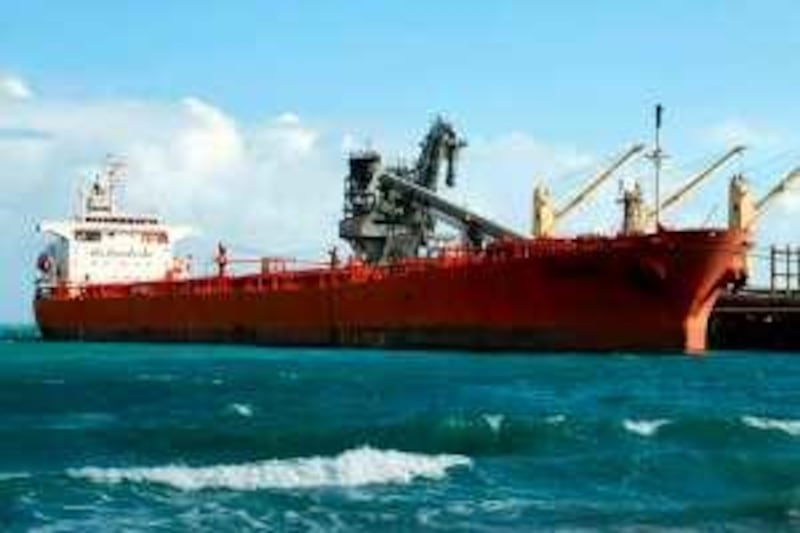Emirates Ship Investment (Eships) plans to embark on a major investment programme to double its fleet in three years to more than 25 chemical, product and dry-bulk vessels as it gears up for a raft of new industrial projects in the Gulf. The Abu Dhabi ship owner and operator hopes to capitalise on plans for petrochemicals and basic metals plants as Gulf countries diversify their economies away from oil and gas revenues.
These plans could include more than US$40 billion (Dh146.91bn) of petrochemical projects in Abu Dhabi alone. Abu Dhabi National Chemicals Company (Chemaweyaat) will deliver an integrated complex to produce olefins, aromatics and oxide and ammonia derivatives by 2015, while various state-owned firms will manufacture and export plastics and other petrochemicals from the Ruwais industrial cluster in Al Gharbia.
The fleet expansion, which could be worth hundreds of millions of dollars, will occur by purchasing and chartering ships, said Scott Jones, the chief executive of Eships. "We are expecting them to export large quantities in long-haul voyages," he said. "The size of our [chemicals] vessels will not be economical, so we have to upsize our fleet." Eships has 13 ships, ranging from 6,500-cubic-metre liquefied petroleum gas tankers to 170,000-tonne Capesize vessels for transporting iron ore. Capesize vessels are too large for the Suez Canal and must pass Cape Horn or the Cape of Good Hope.
Shipping has been battered by the global downturn and the new plans will come at a critical time for shippers, which have seen chartering rates and asset values plummet since their peak in late 2008. "The demand prospects in the region is great news for the shipping industry," said Raffi Vartanian, an analyst with Freight Investor Solutions in Dubai. "For the region these are enormous projects compared with what existed before."
Eships is owned equally by Mubadala Development and Invest AD, two investment arms of the Government. The two Abu Dhabi shareholders last year bought out the shares of the Muscat-based Oman and Emirates Investment Holding, which decided to leave the shipping business. It follows the departure in 2005 of the founding partner, the Klaveness Group of Norway, a dry-bulk specialist, when Eships expanded into the chemicals tanking business.
The fleet acquisitions will be financed through a combination of equity and debt, Mr Jones said, adding that asset values had dropped to attractive rates with the global economic downturn. Eships will "optimise the timing of our expansion by taking advantage of market and price volatility", he said. The company enhanced its credentials as a primary shipping partner for local industry by signing two major contracts last year.
Eships, through a joint venture with a German firm, won its second contract with Emirates Steel Industries in Musaffah to deliver, starting in 2012, 2.5 million tonnes of iron ore per year to be used in steel production. It also won a contract to deliver 1 million tonnes of alumina per year to Emirates Aluminium's Taweelah plant, which began production in December with plans to scale up quickly to become the world's largest aluminium smelter.
In 2008, the company posted a loss, mainly from using financial instruments in an attempt to protect itself against volatile interest rates. But the company will record a profit for last year, as its long-term charter contracts buffered it against the industry's volatility. "In the circumstances, it is a healthy profit, but shipping had a bad year and most companies have had a difficult time," Mr Jones said.
One area the company decided not to focus on, however, was crude tanking. Abu Dhabi National Oil Company requires buyer countries to bear the costs of transporting the crude, which often results in customers hiring shipping firms in their home countries, Mr Jones said. @Email:igale@thenational.ae





